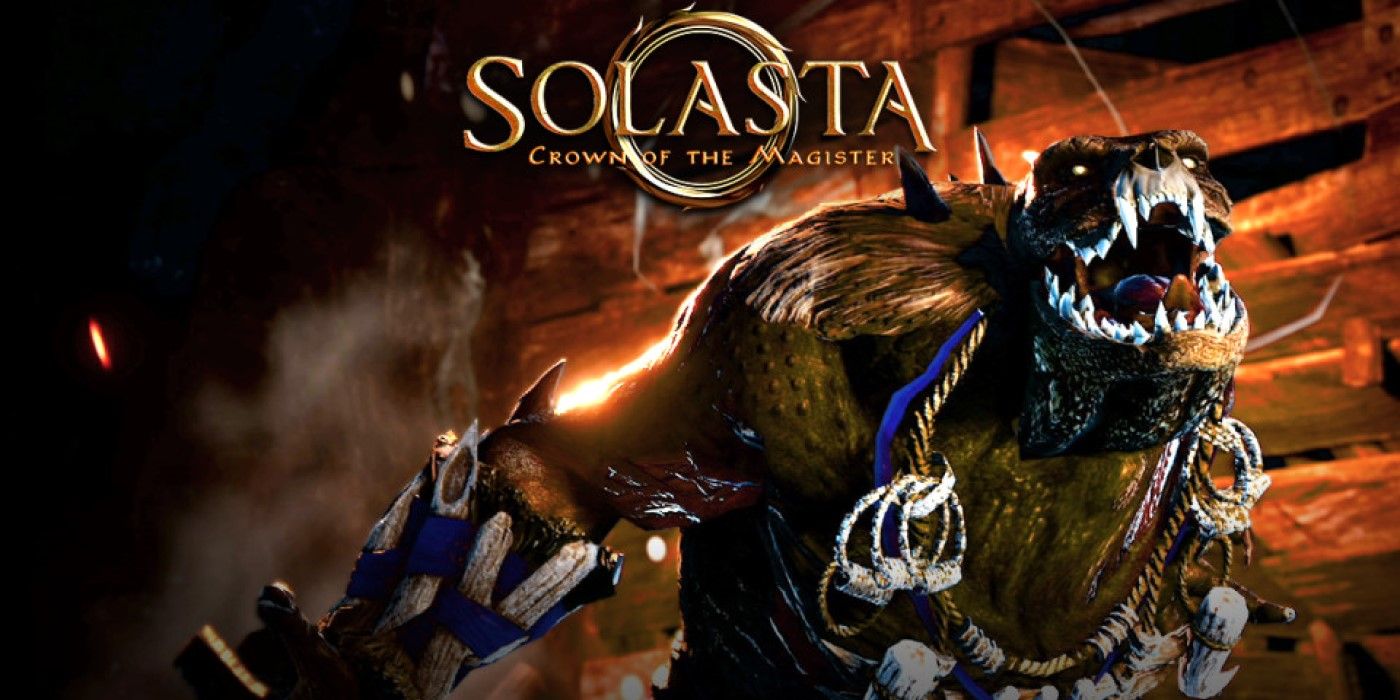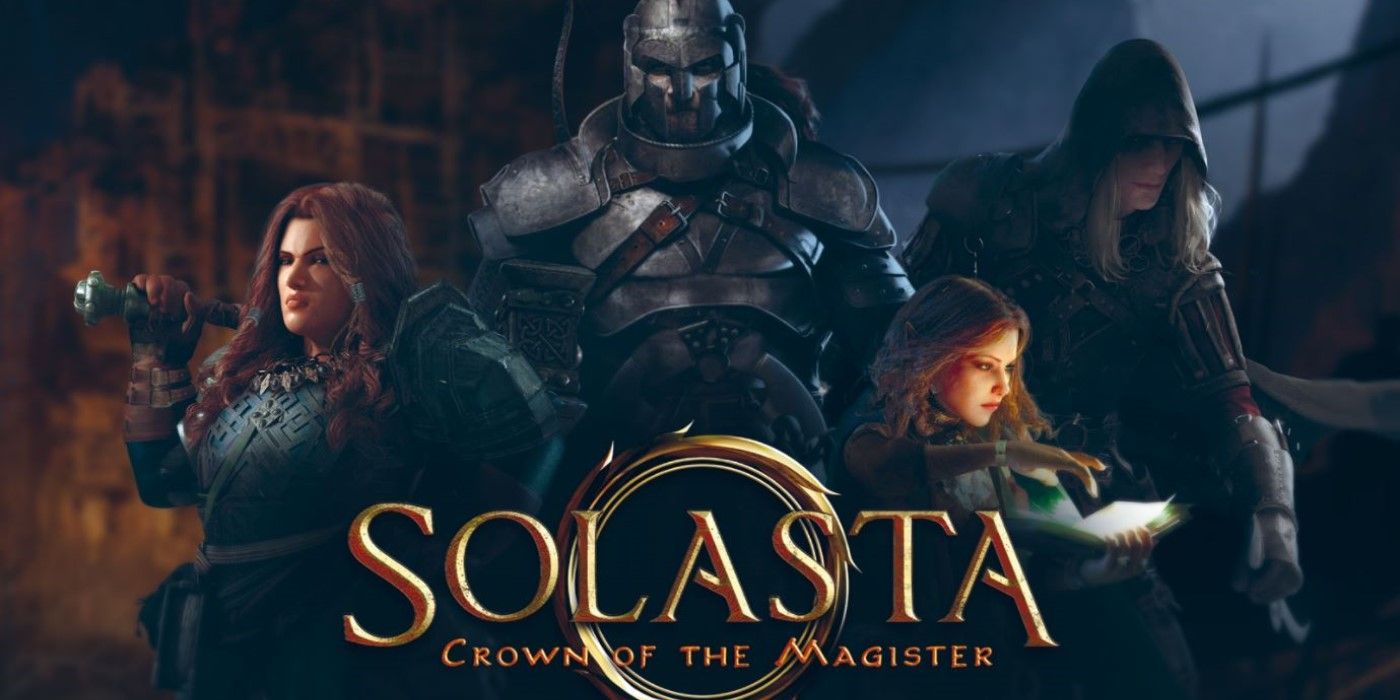Fans of tabletop roleplaying games everywhere should be excited to hop into Solasta: Crown of the Magister due to the fact that the game directly adopts most of its mechanics from Dungeons & Dragons 5th Edition. This means that players will be able to recreate their favorite D&D PCs exactly and go out to explore the world of Solasta as their own personal adventuring party. Luckily Solasta walks players through all of its many different mechanics pretty well.
As fans of Dungeons & Dragons probably know though, the game does have a pretty sizable learning curve. It can be a difficult process to figure out exactly how certain things work in 5th Edition if the player has little experience with tabletop games, and this is something that those same players will probably struggle with in Solasta as well. Those who hope to make their way through the whole game will need to pick things up fast. This guide gives some tips and strategies for new players.
Solasta: Crown of The Magister - Beginner Tips and Tricks
Brush Up On Some D&D Stat Mechanics - The biggest issue with going into Solasta with zero tabletop experience then they may not understand anything about the character creation process. The game does a decent job of explaining these mechanics, but they can still be incredibly confusing. First thing to understand is that there are six ability scores for a character to have: Strength, Dexterity, Constitution, Wisdom, Intelligence, and Charisma. Depending on how high each skill is the player will earn a modifier that they can add to dice rolls when trying to complete an action. Melee attackers would use Strength to deal damage, a Wizard would use Intelligence to cast spells, and a Rogue would use Dexterity to sneak around. Players should brush up on each stat before playing the game.
Balance The Party Before Starting - Before the game has even begun players could very well have committed a serious mistake. A party must be well balanced before the game begins or they won't survive very long out in the world. This means that an entire team of Human Fighters will probably find themselves dying more often than not due to poor party composition. The best idea is to try and fill the party with several types of characters that cover all bases. There should be a supporting character who can protect and/or heal, a heavy damage dealer that can take a beating, some kind of magic user, and someone who has high charisma at the very least. An example of great party composition would be a Fighter, Cleric, Wizard, and Rogue.
Plan Ahead For Leveling - When choosing classes and building the party one very helpful aspect of the game is the ability to look forward at each class's entire leveling roadmap. This will show the player exactly what abilities and feats that character will be able to obtain as time goes on, and even show what potential subclasses they can enter. Knowing where a character will end up will heavily influence how stats are aligned and even how the party should be balanced. For example, it might not be necessary to turn a Paladin into the Oath of Motherland if the player is planning on making their Fighter adopt the Spellblade fighting style. Always look ahead and plan before starting the game.
Verticality and Lighting Are Important - One of the most interesting things that Solasta does is put lighting and verticality at the forefront of the mechanics. This means that players should always try to use these to their advantage in combat or exploration. No matter what the party should carry some kind of light source on them in order to see where enemies are located, prevent having disadvantages in combat, and even discover hidden parts of the map. Verticality can allow the player to attack enemies safely from above or used to push enemies off ledges to their doom. These mechanics can be combined in many interesting ways.
Watch Your Inventory - One very important thing for players to do as well as keep an eye on their inventory to ensure that their characters don't become over-encumbered. Depending on the difficulty level this system will work a little differently, but either way inventory limits are tied directly to a character's strength stat. This means that weaker characters can carry less weight, and therefore must be monitored more often. Being encumbered causes a character to move slower and affects their ability to sneak around. Try to sell off unwanted items or transfer heavy items to burlier characters like a Fighter or Paladin.
Always Identify Unknown Objects - One mechanic that isn't explained very well is that some items can be identified using magic spells, and doing so can uncover some extremely powerful items. When a hidden item is acquired it will have a question mark on it and will appear to be a cheap item worth little gold, but by casting a spell like Detect Magic on it the player can uncover its secret properties. This will alter the weapon's stats and increase its value exponentially. Before selling a seemingly worthless item a player should always identify it first to see if it's better to keep or at least increase the amount of gold that they will receive for it.
Play To Your Party's Strengths - Every class and character will be better at different activities in the game, and so it is best to always play to a character's specific strengths and avoid their weaknesses. Every important action in the game will require a dice roll, which means that failure can happen at any time. The best thing to do is to use a character to perform actions that they are already good at to increase the chances of success. This means that the player shouldn't try to pick a lock using their Fighter with no Dexterity, but should instead task the Rogue with a +6 to that specific skill.
Not Everything Is A Fight - A big mistake that a lot of rookie 5e players make is to try and kill everything they meet. This is a recipe for disaster that will more than likely lead to an entire party getting killed. This is the same in Solasta where there are quite a few different combat encounters that can be more easily solved by having a conversation with the offending party. Much of the time the player can use the character with the most Charisma to defuse a situation and not have to fight at all. If it doesn't work then they may have to fight, but it is always worth the effort.
Don't Forget To Rest - Players shouldn't forget to take long and short rests throughout their travels. As they progress they will take a lot of damage or expend spell slots and abilities that won't just automatically recover. Many of these things can only be fixed by engaging in different kinds of rests. A short rest will allow the player to spend hit die to recover a small number of hit points whereas a long rest can be used to recover health entirely and replenish all spent abilities. Use these rests whenever there is an opportunity.
Solasta: Crown of the Magister can be played on PC.


